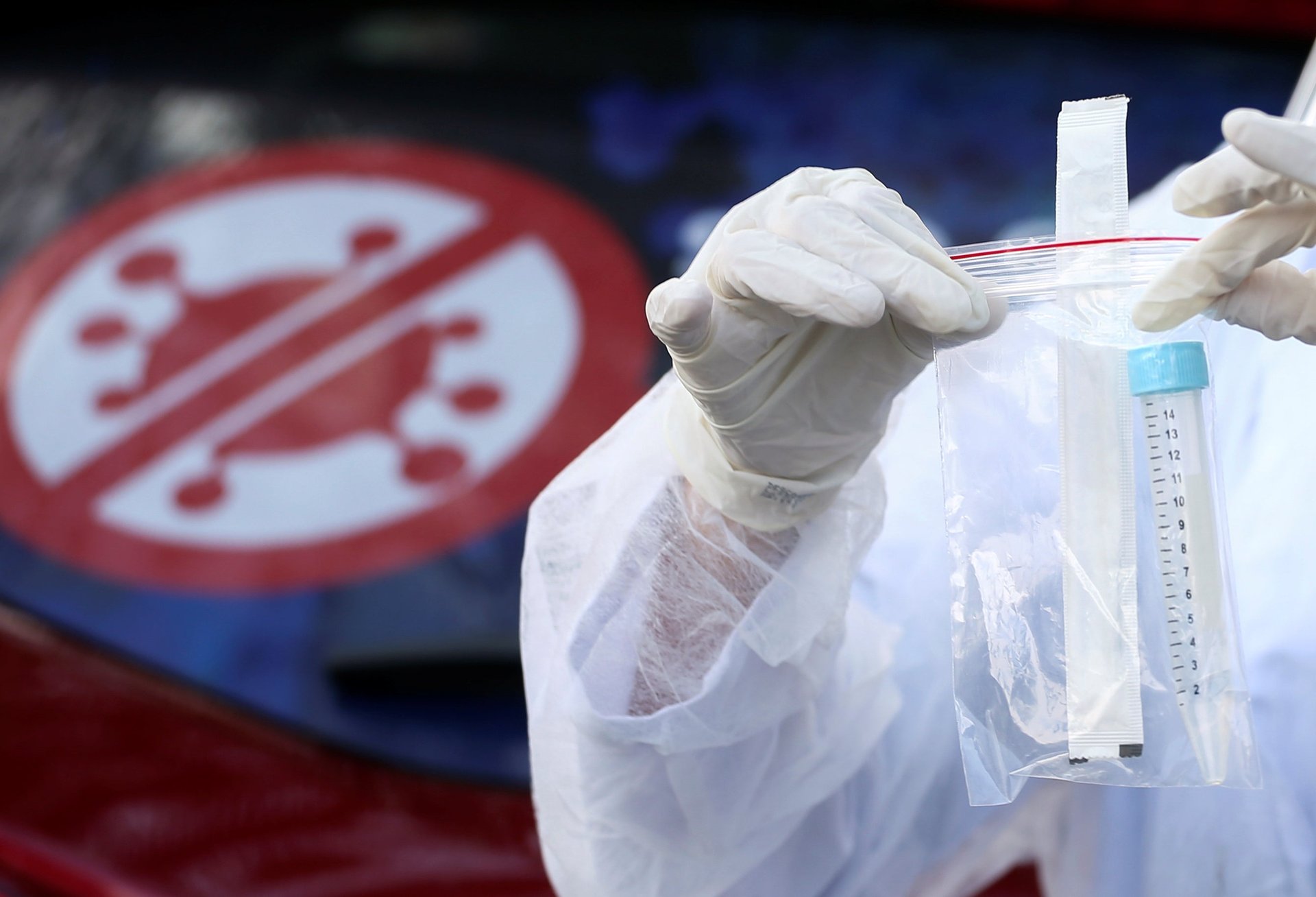Why some Covid-19 patients might have tested positive twice
On Friday (April 10), South Korea, which has been applauded for its Covid-19 testing strategy, announced that a number of patients who appeared to be cleared of a Covid-19 infection had tested positive again. Ninety-one patients, Korean Centers for Disease Control officials stated during a briefing reported by Reuters, retested positive for the virus via a PCR test.


On Friday (April 10), South Korea, which has been applauded for its Covid-19 testing strategy, announced that a number of patients who appeared to be cleared of a Covid-19 infection had tested positive again. Ninety-one patients, Korean Centers for Disease Control officials stated during a briefing reported by Reuters, retested positive for the virus via a PCR test.
Korea is not the first country to report cases of apparent reinfection. In Guangdong, China, health officials found that 14% of patients (paywall) retested positive for Covid-19; at least one died (paywall) five days after he was discharged and tested negative. In Wuhan, where the pandemic began, the proportion of patients who test positive after testing negative is between 5% and 10%. In Osaka, Japan, a tour guide reportedly tested positive for Covid-19 after previously testing negative.
So what’s going on?
One explanation could be that people can be reinfected with SARS-CoV-2—that is, mount a new immune response to the virus even after their body has beaten back an initial infection. If that is the case, as countries around the world begin lifting social distancing restrictions and revving up their economies, they may need to reinstate mitigation efforts and prepare to support newly-overwhelmed healthcare systems.
But experts say it seems unlikely that reinfection is the cause of these new positive results.
One explanation could simply be that the tests administered to these patients weren’t sensitive enough to distinguish between an active infection and one from which a patient has mostly recovered. “What many people don’t understand is that PCR tests simply for the virus’ genetic material and it is not an assay for active virus,” says Richard Condit, a molecular biologist and professor emeritus at the University of Florida College of Medicine.
As the body is recovering from an infection, it clears what Condit calls “virus litter”—inactive debris of viral cells—from the lungs. That litter can be coughed up into the throat, where clinicians take a sample, and a sensitive diagnostic test might mistake that debris for an active infection. It’s also possible—though rare—for a swab to pick up virus in the throat but for that virus to never lead to an active infection.
There could be other testing issues, too. False negatives are surprisingly common, notes Purvi Parikh, an immunologist at NYU Langone Health. Sometimes healthcare workers don’t collect enough material from a patient to get a clear answer; sometimes the test themselves vary so widely that a negative in one could be a positive in another.
Another possibility is that the amount of virus in the patients’ bodies dipped, then spiked again. “They could have had low levels [of the virus] that the test wasn’t picking up and started to replicate again,” says Brianne Barker, an associate biology professor at Drew University. Viruses can reactivate or resurge after a period of latency in the body, though it’s more common in other kinds of viruses—herpes, for example, and varicella, the virus that causes chickenpox and shingles. If SARS-CoV-2 could act similarly, the body may have some immunity when it resurges, meaning that a person may not be able to transmit the virus or that symptoms could be much more mild the second time around.
Yet another option could be that a patient is infected with a different strain of SARS-CoV-2 (preliminary studies show that there are three) the second time they test positive, which could elicit a different immune response, Parikh suggests.
For now, it’s hard to know what exactly is going on. The World Health Organization is looking into the situation (neither Korea’s CDC nor the WHO has responded to Quartz’s request for further information). And in fact, many researchers and clinicians still have more general questions about people’s immunity to SARS-CoV-2. “With the known human coronaviruses, it looks like you establish reasonably good short term immunity, though there’s evidence that immunity can wane over time. And if it does, you can be reinfected, but that usually results in a milder disease,” Condit says.
“I’d love to look at individuals to see exactly which immune responses they’re making and how long they’re persisting,” Barker says—a process that she says could take weeks, months, or years.
Until researchers have answers to those questions, serology tests—and the so-called “immunity passports” that countries such as the UK and Italy are reportedly considering—would be useless, and maybe even dangerous.
“This throws a wrench in [plans to lift mitigation efforts] in that we might not be able to reopen as quickly as we thought we could,” Parikh says. “Again, it’s too soon to tell—we still need answers on those people who got reinfected… That will help us answer how quickly we could reopen and how accurate the serology is.”